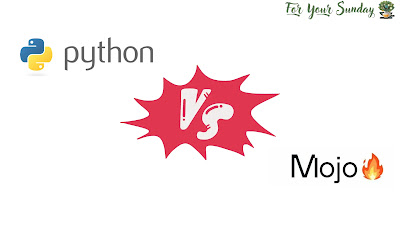 |
| Python vs Mojo: Compare for data analysis. Explore versatility, libraries, community, integration, and job prospects |
Versatility and Ease of Learning
Python's popularity in data analysis stems from its versatility and ease of learning. Known for its clean syntax and readability, Python is beginner-friendly and offers a wide range of libraries for data manipulation, visualization, and statistical analysis. Mojo, while capable, may have a steeper learning curve, making Python a preferred choice for analysts at various skill levels.
Library Ecosystem
Python boasts a rich ecosystem of libraries such as Pandas, NumPy, and Matplotlib that are tailored to data analysis tasks. These libraries expedite data handling, transformation, and visualization. Mojo, while offering libraries like H2O.ai, might have a narrower scope. Python's expansive library ecosystem is a compelling reason for data analysts to choose it as their primary tool.
Community and Support
Python's extensive community and support contribute to its attractiveness. With a large user base, finding solutions to problems, accessing tutorials, and getting help is easier. Mojo, while backed by H2O.ai, might have a smaller community. The abundance of Python resources ensures that data analysts can overcome challenges more effectively.
Integration and Compatibility
Python's compatibility with various data-related tools, databases, and frameworks is a significant advantage. It seamlessly integrates with platforms like Jupyter notebooks, SQL databases, and popular machine learning frameworks. Mojo's compatibility might be more limited in comparison. Python's widespread integration capabilities enhance its utility for data analysts in diverse environments.
Industry Adoption and Job Market
Python's dominance in data analysis is evident through its extensive industry adoption. Many companies and organizations prefer Python for its flexibility and accessibility. The job market also reflects this trend, with a plethora of data analyst roles specifically seeking Python proficiency. While Mojo might be gaining traction, Python's established presence provides a competitive edge to data analysts.
Ultimately, the decision between Python and Mojo hinges on your specific requirements and preferences. Python's versatility, library ecosystem, community support, integration capabilities, and industry recognition make it a powerhouse for data analysts. On the other hand, Mojo's capabilities and potential advancements might appeal to certain niches.Assess your project needs, consider the learning curve, and evaluate the tools each language provides. Whichever language you choose, continuous learning and adaptation are key. Remember that the best language for data analysis depends on your goals and the context in which you work. By analyzing these factors, you can confidently select the programming language that best suits your data analysis endeavors.


Post a Comment